Toothache

When a tooth is sore, and there is no possibility or desire to go to a dentist’s appointment, then a variety of means are used: from attempts to pick a tooth with a needle to all sorts of prayers and plots. If a person is sure that a toothache conspiracy will help him - well, perhaps it will be so. Strangely enough, but in certain cases it works: pain decreases or even disappears completely. However, it is important to understand that even if the pain is gone, the disease itself will not disappear anywhere, and moreover, if left untreated, it can become chronic with severe complications. For the sake of curiosity, we will try to figure out which conspiracies against toothache are most often practiced in alternative medicine and how their healing power is substantiated ...
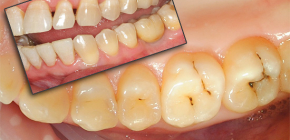
Unfortunately, we can face a toothache at any time and at any age. Naturally,No dentist will prohibit the use of home ways to get rid of toothache, if they do not contradict common sense and do not have a harmful effect on the body. However, as practice shows, many people do not know at all what to do in order to relieve a toothache correctly, sometimes dangerous amateur activities begin and they risk their health. Well, it's time to get acquainted with the popular and professional methods of assistance in such situations, as well as to learn more about the various mechanisms for the occurrence of toothaches.
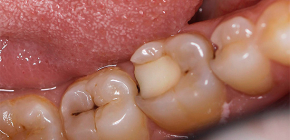
Generally speaking, folk remedies for toothache are much less effective than modern pharmaceuticals. However, in many cases, those who suffer from pain in their teeth prefer folk recipes rather than various pills. And there is nothing surprising in this: it is considered that folk remedies are safer, and therefore they can be used without harm to health. But are folk remedies always safe? And which of them really can effectively soothe a toothache, and which ones will not give a special effect? Let's understand ...
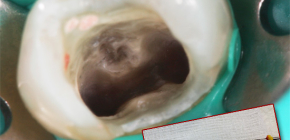
It often happens that a seemingly tooth is already cured, a seal has been placed, but suddenly it starts to hurt. Especially often the pain occurs after treatment and sealing of the channels. Is this the norm, and if so, how long will it take to endure such pain? Why does this pain arise and can it be dangerous with any complications? Answers to these and some other interesting questions will be discussed further with you ...
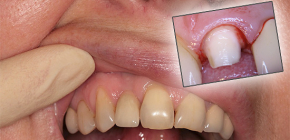
It would seem that the crown-closed tooth should not hurt, since as a result of the treatment, it turns out to be immured into a kind of “sarcophagus” that reliably protects against external influences. However, life dictates its own rules, and sometimes there are cases of pain under the crown - immediately or some time after its installation. A certain percentage of pain passes quickly and without harm to a person, but there are situations when the tooth under the crown or the gum adjacent to it needs serious help to avoid complications such as swelling of the gums, fistula with pus, abscesses and osteomyelitis, often leading to tooth extraction .What you need to know about the pains under the crown, in which cases you can relieve pain at home (and how to do it), and in what cases it is better to see a doctor immediately, as well as what you can expect at the dental clinic - all this we'll talk further ...
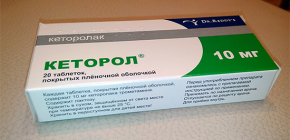
Ketorol is a well-known anesthetic that helps even in situations with very strong and acute toothache. Like Ketanov, dentists often prescribe it to patients who, after performing complex or extensive manipulations, have pain for a certain time, or in those cases where treatment is not possible immediately and the patient with acute pain needs to wait to see a doctor. Given the strength and side effects of the tool, it must be applied in strict accordance with the instructions. It is about pain relief with the help of Ketorol and the rules for its use, we will talk further, and also see how those who have already managed to test it in action respond to the effectiveness of the drug.
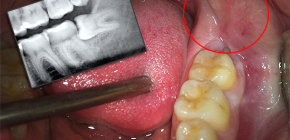
The eruption of the lower wisdom tooth (more rarely, the upper one) is almost always accompanied by severe pain.And pain pills here will not always help, as inflammation of the gums over the wisdom tooth often develops into purulent swelling, sometimes with pus moving into the jaw, up to the development of sepsis (blood poisoning) with possible death. Previously, dentists-surgeons used to excise the gingival hood over it for emergency care for pain from a wisdom tooth erupting, but the statistics of failures later forced to change treatment approaches. About what can be done at home for anesthesia of the gums, as well as what might be waiting for you at the clinic, if you go there with pain from a growing wisdom tooth, we will go on and talk ...
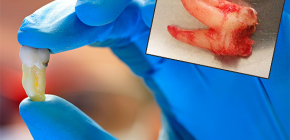
People of the old school are often afraid to remove teeth in general, including wisdom teeth. And often this is connected with memories of how, in Soviet times, dentists-surgeons spent a long time, very painful and with great difficulty, performed removal with the help of a special chisel and hammer. It is clear that wresting a wisdom tooth was very painful, especially in difficult cases, when it had to be taken out of the gums literally in pieces.However, today, dentistry has made great strides and has a set of necessary techniques and tools that allow you to remove the wisdom tooth as painlessly, comfortably as possible and without consequences, and then to prevent possible complications. We will talk more about how the procedure is carried out and how painful it is today to remove wisdom teeth ...
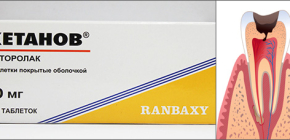
Patients with acute toothache or after complex manipulations dentists often prescribe Ketanov - a drug that is effective even with a strong pain syndrome. Knowing this, many are trying to apply Ketans at home on their own, without a doctor's prescription. Given the same contraindications and side effects of this tool, such initiative can be very dangerous. Let's see together, in what cases and how correctly Ketans should be taken to relieve toothache, and when it is better to refuse to use this drug.
